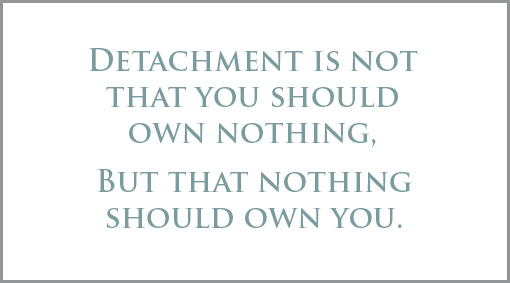Science & technology; desire & attachments
I was challenged by an animal lover when I made the point I was not into pets: dogs, horses, cats etc. I said it is not a good idea - from a spiritual point of view - to have too many attachments ... this position was deemed an odious cliché.
The idea being that pets are good for people, they give oldies comfort and the argument was put to me that having pets is scientifically proven to be beneficial and that - by inference - science must not be doubted.

Fair enough, I can see the validity in that argument. But - while I accept science as good in most aspects of every-day-life (in medicine with the invention of penicillin, antibiotics and vaccines, in industry, communications etc, the list is endless) - I would like to say that there is a dark side to science & technology. After all we also have the atomic bomb, wars, climate change and many other ills ... all due to science & technology.
If humanity does not survive the next thousand or so years, the reality is that the cataclysm will likely be due to the outgrowths of science & technology. If we do not conquer the Fifth Filter (on which I have an essay THE FUTURE), humanity’s demise will be due to climate change, war or Artificial Intelligence gone awry (essay AI) … every scenario a result of science & technology.
But my point here is - coming back to attachments - that the ills that befall humanity are not necessarily due to the application of science and inventions of technologies, but to humans’ inability to curb their attachments and detach from their dependence on those technological marvels. Were we able to detach from the comforts of modern living, there would be no climate change; were we able to detach from the issues that cause war, we would have peace etc.
Here I come to another reality. It's radically different to the realty of modern living; in fact, I think it is not wrong to call it another science.
Some two thousand five hundred years ago a prince of an Indian kingdom wanted to see for himself how his subjects lived. When he found them in poverty, disease and despair he was shocked. He left his privileged life, his wife and child, and wandered around for years and years, learning about life.
One day - legend has it as he was meditating under the Bodhi tree - he had an epiphany and he realised what the causes of all of humanity’s suffering are ... desire, attachment and the inability to detach and let go.
For the rest of his life he taught meditation, and that the gaining of nirvana (the end of suffering) is dependent on being able to curb one’s desires and to desist from having too many attachments.
In the West we do the opposite: we strive to grow our desires ... we own a bicycle, we want a motorbike; we own a motorbike, we want a car; we have a small tv, we want a bigger one etc; indeed, our entire society & economy are built on the premise that our desires and attachment to our assets grow and grow.
We find it hard to accept our circumstances ... where we would change what we have influence over and we would accept what we can’t change.
We should detach from the issues that irritate or infuriate us and we should free ourselves from our attachment to our life comforts as well as our political and religious convictions (essays ATTACHMENTS, BUDDHISM, DETACHMENT).
There is a bottom line to the issue of attachments:
If you ever meet someone who has curbed their desires, is able to control their attachments, detach and let go … you will find yourself in the presence of a person without anxiety, depression and fear (the fear of life).
Who instead have peace in their heart.